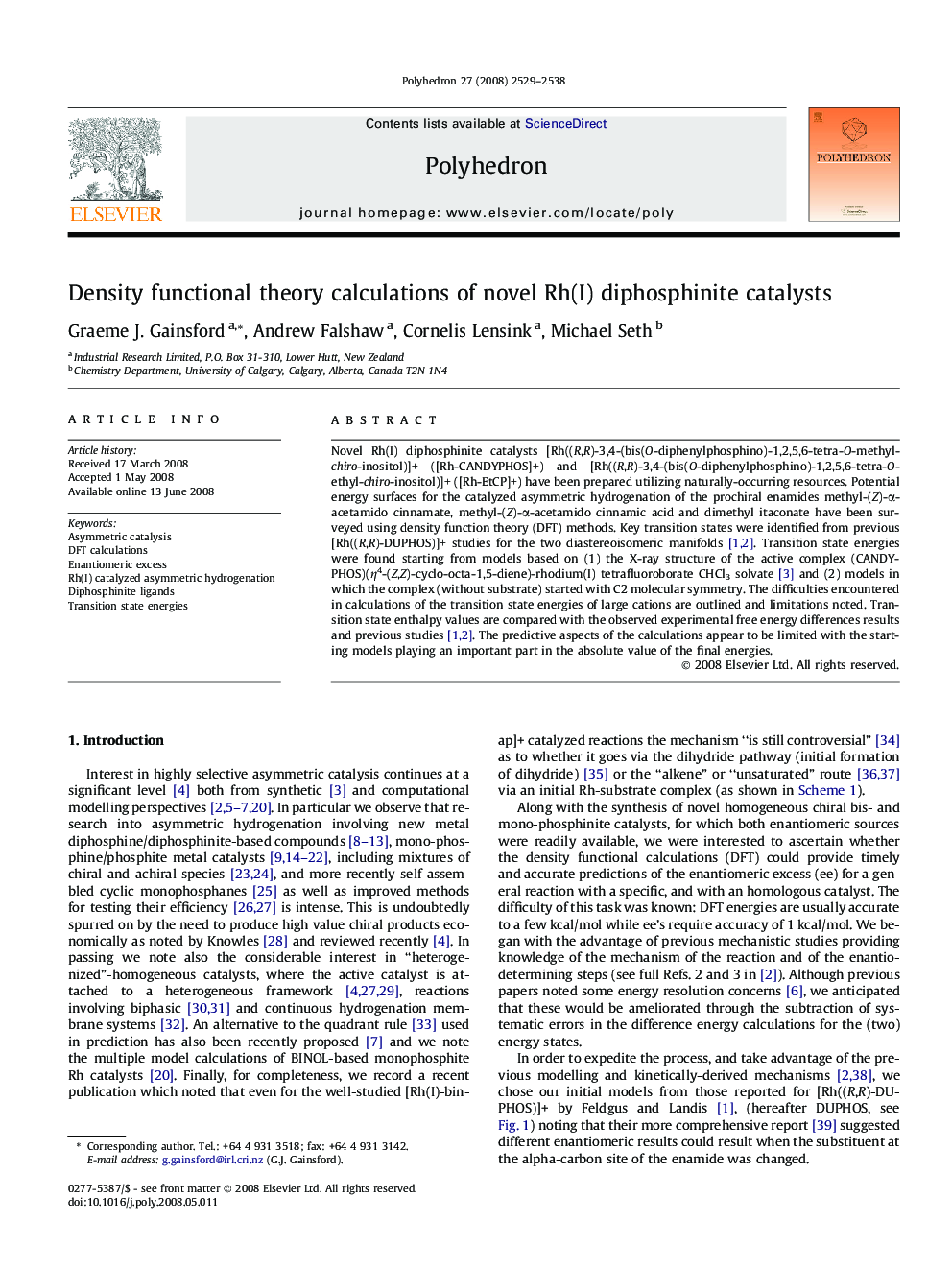| کد مقاله | کد نشریه | سال انتشار | مقاله انگلیسی | نسخه تمام متن |
|---|---|---|---|---|
| 1339251 | 979700 | 2008 | 10 صفحه PDF | دانلود رایگان |

Novel Rh(I) diphosphinite catalysts [Rh((R,R)-3,4-(bis(O-diphenylphosphino)-1,2,5,6-tetra-O-methyl-chiro-inositol)]+ ([Rh-CANDYPHOS]+) and [Rh((R,R)-3,4-(bis(O-diphenylphosphino)-1,2,5,6-tetra-O-ethyl-chiro-inositol)]+ ([Rh-EtCP]+) have been prepared utilizing naturally-occurring resources. Potential energy surfaces for the catalyzed asymmetric hydrogenation of the prochiral enamides methyl-(Z)-α-acetamido cinnamate, methyl-(Z)-α-acetamido cinnamic acid and dimethyl itaconate have been surveyed using density function theory (DFT) methods. Key transition states were identified from previous [Rh((R,R)-DUPHOS)]+ studies for the two diastereoisomeric manifolds [1] and [2]. Transition state energies were found starting from models based on (1) the X-ray structure of the active complex (CANDYPHOS)(η4-(Z,Z)-cyclo-octa-1,5-diene)-rhodium(I) tetrafluoroborate CHCl3 solvate [3] and (2) models in which the complex (without substrate) started with C2 molecular symmetry. The difficulties encountered in calculations of the transition state energies of large cations are outlined and limitations noted. Transition state enthalpy values are compared with the observed experimental free energy differences results and previous studies [1] and [2]. The predictive aspects of the calculations appear to be limited with the starting models playing an important part in the absolute value of the final energies.
Transition state energies were calculated by DFT methods for the asymmetric hydrogenation of three prochiral enamides using two novel Rh(I) chiral diphosphinite catalysts prepared from naturally-occurring resources. The predictive aspects of the calculations appear to be limited with starting models playing an important part in determining the final energy values.Figure optionsDownload as PowerPoint slide
Journal: Polyhedron - Volume 27, Issue 12, 21 August 2008, Pages 2529–2538